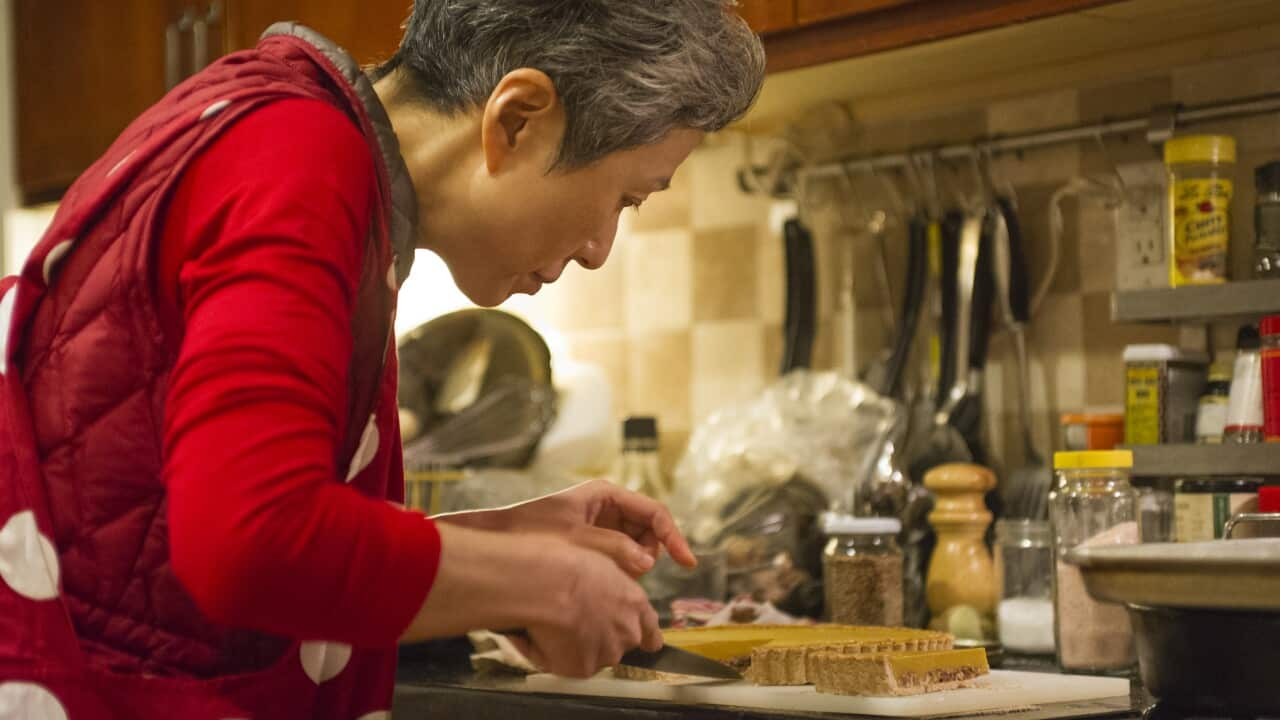You might be surprised to learn exactly how long leftovers such as salads can last in our fridges or how far we can push a prawn before it makes us sick.
Food safety experts warn it doesn't take very long and emphasise food becomes even more risky .
That's how Christmas often is in Australia — hot.
When food is not kept at the right temperature or starts getting stale, it becomes a food poisoning risk.
Here are some tips from experts that can help you avoid becoming one of the estimated 4.67 million cases of food poisoning a year in Australia.
How long can you keep leftovers in the fridge?
It's ideal to eat cooked food within a day, according to the Food Safety Information Council (FSIC), a health promotion charity.
Food microbiologist at CSIRO, Dr Rozita Spirovska Vaskoska, told SBS News that four days is the deadline within which cooked food in the fridge must be eaten.
It becomes unsafe after that.
However, the freezer can be your friend and many foods can be stored in it for up to three months, FSIC spokesperson Lydia Buchtmann told SBS News.
To better manage food storage and leftovers, Buchtmann recommended not buying too much food and cooking more quantities than required in the first place.
"None of us want to waste food, particularly during a cost of living crisis."

Experts say you should put leftover food in the fridge or freezer as soon as possible. Credit: Karen Moskowitz
Tips for food safety over the holiday season
Put leftover food in the fridge or freezer as soon as possible and don't leave it in the sun at any point, experts advise.
Bacteria that cause food poisoning rapidly grow at temperatures between 5C and 60C, which is why food ought to be stored at a temperature below 5C as soon as it starts cooling down after being cooked, to avoid what scientists call the 'danger zone'.
Starchy foods such as rice and potatoes can start to grow dangerous botulism bacteria very quickly in the danger zone and can't be left out for any period of time, Buchtmann said.
Most fridges will be set to below 5C but if the door is opened frequently the core temperature can go up to an unsafe level.
Buchtmann suggests "sourcing a fridge thermometer and limiting the amount of times the fridge door is opened".
Putting drinks in buckets or sinks of ice can reduce the demand on the fridge, she said.
Similarly, she urged people to use meat thermometers when cooking to ensure meats are cooked all the way through to kill any bacteria that may be present.

Cooking a chicken with stuffing can increase cooking time. Source: Getty / SimpleImages
Raw meat dishes can also be risky, particularly for some groups (see below).
Vaskoska said ham is typically made with less salt now than it used to be, meaning it won't last as long, and should be stored in containers or a fabric 'ham bag'.
There can be a lot going on in the kitchen when preparing big meals but hygiene needs to be a priority, Vaskoska added.
People need to "wash hands before preparing food, again after touching meat, and again before anything that's going to be eaten without cooking, like salads".
Who is at risk of worse food poisoning?
Some groups of people are at risk of more severe complications from foodborne illnesses, Buchtmann said.
These include people who are immuno-compromised, young children, the elderly and pregnant people.
"Most of us could probably throw it off, but these groups don't have as strong an immune system, particularly pregnant mums. They've got to think about the unborn baby," she said.
How to diagnose and manage food poisoning
Foodborne illnesses are caused by toxins, or they can be gastrointestinal infections, Vaskoska said.
"They normally manifest symptoms in two hours at a minimum, but can be up to a month or even a couple of months later, maximum."
"Symptoms such as vomiting or diarrhoea will show up normally in the next 24 hours, but it can take up to a week for them to appear."
"It's not always the last food that people ate that causes foodborne illness," she said.
Most people will not need medical help for foodborne illnesses but need to make sure they keep up their fluid intake.













